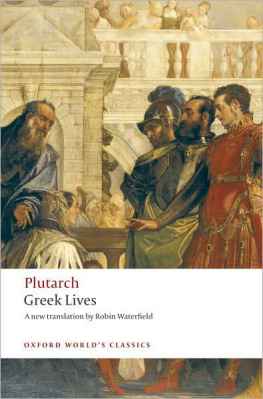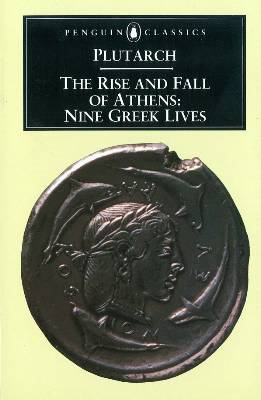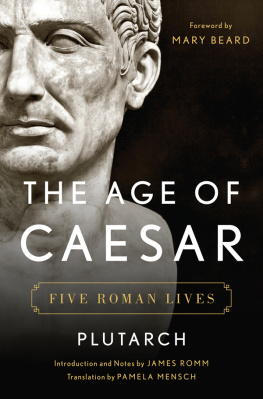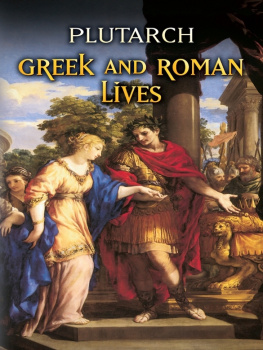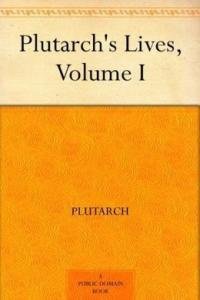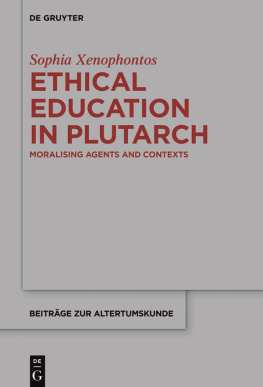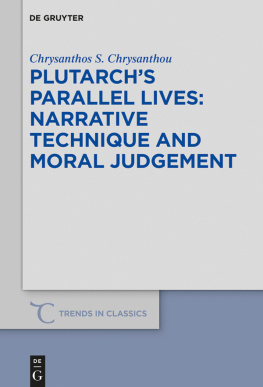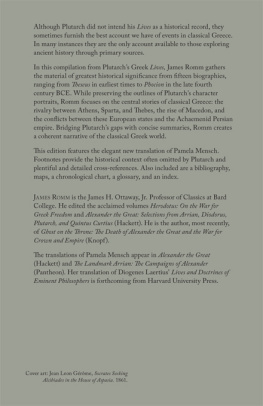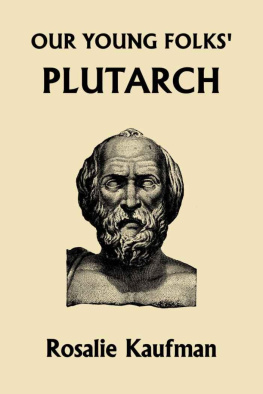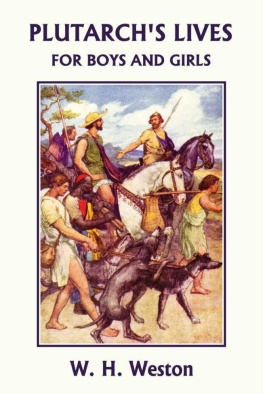Translator's Introduction
Plutarch was born at Chaeroneia, a small town on the northern confines of Boeotia, about the middle of the first century of our era, and toward the close of the reign of the emperor Claudius. He belonged to a family of ample means and generous culture, and was liberally educated. He studied at Athens, the most attractive university town in his day for both Greeks and Romans, and was a disciple of Ammonius of Lamptrae, a Peripatetic philosopher deeply versed in religious lore. Returning to his native town, he was soon called upon to represent it as deputy to the Roman governor of the province of Greece. That he travelled extensively over Greece, visited Asia Minor, Egypt, and Italy, and resided much at Rome, may be inferred from his writings, as most that is known about him must be inferred. At Rome, he was in charge of certain public business, so that he had not time to learn thoroughly the Latin language, as he himself confesses in the introduction to the Demosthenes. But Greek was the language of literary and polite society at Rome, and cultivated Greeks, especially philosophers, were welcome there. As a Greek philosopher, and a populariser of Platonism, Plutarch read and lectured at Rome, much as he did in the small but select circle of his intimates and friends at home. He made and retained a large acquaintance with the prominent Romans of his day, and was familiar with the questions which most occupied the minds of men at the political centre of the world. Then, after Athenian education, generous travels, diplomatic missions, modest literary celebrity, and considerable residence at Rome, he seems to have retired to his little country home, with his books, notes, lectures, essays, and gentle philosophy, and there, in a leisure not all too much encroached upon by local magistracies and certain religious offices at neighboring Delphi, to have elaborated the sketches of his lectures and essays, which have come down to us under the collective name of Morals , and to have composed the work on which his fame chiefly rests, the Parallel Lives of Greeks and Romans. He lived through the reigns of Nero, Domitian, and Trajan, and, leaving the world as he did about 120 A.D. , must have rejoiced at the accession of Hadrian to the imperial throne. His world had grown steadily better while he lived, and was now to enjoy its second golden age.
The Morals were composed, for the greater part, before the Lives , and are an invaluable prelude to and commentary on them, especially if we would know just what manner of man the author of the Lives was. They tell us, as the Lives do not, "of the points of view, moral and religious, from which he contemplated not this man's life or the other's, but the whole life of men. Nor is it too much to affirm that of the two halves of Plutarch's writings, of his Lives and his Morals , each constitutes a complement of the other; the one setting forth to us, and, so far as this was possible, from ideal points of view, what the ancient world had accomplished in the world of action, and the other what, in like manner, it had aimed at and accomplished in the world of thought" (Trench, Plutarch , p90). But even in the Lives , Plutarch is far more moralist than historian.
Greece, after passing under Roman sway, lost sight gradually of her great men of action, and contented herself with the glories of her men of thought. Here surely the dominant Romans could not vie with her. It was to prove that the more remote past of Greece could show its lawgivers, commanders, statesmen, patriots, and orators, as well as the nearer and therefore more impressive past of Rome, that the Parallel Lives were written. With Scipio Africanus the Elder, the greatest man of Rome, Plutarch matched Epaminondas, the greatest man of Greece. This pair, or "book," of Lives is unfortunately lost. With Camillus, who saved Rome from the Gauls, he matched Themistocles, who saved Athens from the Persians. Then followed, as nearly as the order can be determined for the order of the Lives in our collection is not the original one, the Cimon and Lucullus , the Lycurgus and Numa , the Demosthenes and Cicero , the Pelopidas and Marcellus , the Lysander and Sulla , the Philopoemen and Flamininus , the Pericles and Fabius Maximus , the Aristides and Cato Major , and thirteen other pairs. Eighteen of the twenty-two pairs which have come down to us, close with a formal comparison of the two careers and characters. This is often fanciful and forced, abounds in contrasts rather than resemblances, and is seldom of any special historical value, although it often has great literary charm. There are also four single Lives in our collection, Artaxerxes, Aratus, Galba , and Otho , and we get traces of twelve more that are now lost. One of the pairs is a double one, where, to match the two Gracchi, Plutarch selects the two reforming Spartan kings, Agis and Cleomenes. We have in all, therefore, fifty Lives by Plutarch.
Manuscripts, Editions, Translations, Etc.
A full account of the MSS. of Plutarch must be sought in the critical editions of the Lives by Sintenis and Bekker. It will be sufficient to speak here of six.
The oldest and, with one exception, the most authoritative MS. , is the Codex Sangermanensis ( S g ), in the library of the monastery of St. Germain-des-Prs, in the French Department of the Loire. It is a parchment MS. of the X th century, but unfortunately contains only fifteen of the Lives : Antony (last part), Pyrrhus-Marius, Aratus, Artaxerxes, Agis and Cleomenes, Tiberius and Caius Gracchus, Lycurgus-Numa, Lysander-Sulla, and Agesilas-Pompey.
The second oldest MS. , and on the whole the most authoritative, is the Codex Seitenstettensis ( S ), belonging to the monastery of Seitenstetten, near Waidholfen, in Lower Austria. It is a parchment MS. of the XI th century, containing sixteen Lives : Lycurgus-Numa, Solon-Publicola, Aristides-Cato the Elder, Themistocles-Camillus, Cimon-Lucullus, Pericles-Fabius Maximus, Nicias-Crassus, and Agesilas-Pompey. There are large deficiencies in the Lycurgus, Fabius, Nicias, and Crassus. It is only since 1870, and the edition of the Aristides and Cato by Hercher, that this MS. has been known to be not only the second oldest, but the best extant MS. of Plutarch. It has not been used in any special editions of Lives included in this first volume, but its readings are collected in the dissertation of W. Meyer, De codice Plutarcheo Seitenstettensi eiusque asseclis, Leipsic , 1890.
Three parchment MSS. in the Bibliothque Nationale of Paris, No. 1671 ( A ), of the XIII th century, containing all the Morals and Lives , No. 1672 ( C ), also of the XIIIth century, containing all the Lives , and No. 1674 ( D ), of the XVIth century containing all the Lives , are of supreme importance, and on these the texts of Sintenis and Bekker mainly rest. Of these three MSS. , A and D seem to be more closely related to S g , while C partakes of the characters both of S g and S , and is often corrective of A and D .
Another MS. in the same library, No. 1676 ( F a ), of the XV th century, has only more recently been recognized as the chief authority of Stephanus, and as partaking of the character of S . Its readings have not fully been published as yet, but have been used in editing the texts of special Lives , none of which, however, are included in this first volume.
Other MSS. will be mentioned as they come into importance for the text of special Lives.
The editio princeps of the Parallel Lives , 1517, "Florentiae, in aedibus Philippi Juntae," was based on Florentine MSS. of relatively inferior value.


